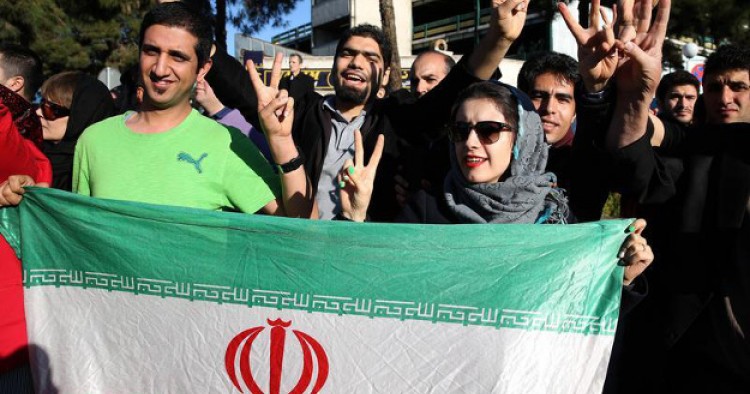Read full article at The National Interest.
Iran’s foreign minister, Javad Zarif, was on his way back to Tehran from Lausanne as accolades began to pile up. At the airport, he received a rapturous reception, as if the Team Melli, Iran’s national soccer team, had beat Germany.
But not everyone was praising Zarif. Fars News, a hardline outlet, called some of Iran’s nuclear compromises a “disaster.” Hardline Iranian officials are questioning what exactly Zarif surrendered during the talks. The next few days and weeks, as the negotiators look to fine-tune the agreement, will reveal more, but the first reactions are nonetheless telling.
The Supreme Leader
Iran’s Supreme Leader, Ayatollah Ali Khamenei, has yet to tweet anything on the nuclear agreement, but the earliest of signs suggest that he is still backing the talks and the agreement. One of the conspicuous signs was the decision by Islamic Republic of Iran Broadcasting (IRIB) to provide live transmission of President Obama’s post-deal press conference in Washington.
This was the first time in the history of the Islamic Republic that the speech of an American president was broadcast live on Iranian television. The head of the IRIB is a direct appointment by Khamenei, and such a bold move by the broadcaster surely could not have been made without first securing a green light from the Office of the Supreme Leader.
The Middle East Institute (MEI) is an independent, non-partisan, non-for-profit, educational organization. It does not engage in advocacy and its scholars’ opinions are their own. MEI welcomes financial donations, but retains sole editorial control over its work and its publications reflect only the authors’ views. For a listing of MEI donors, please click here.












